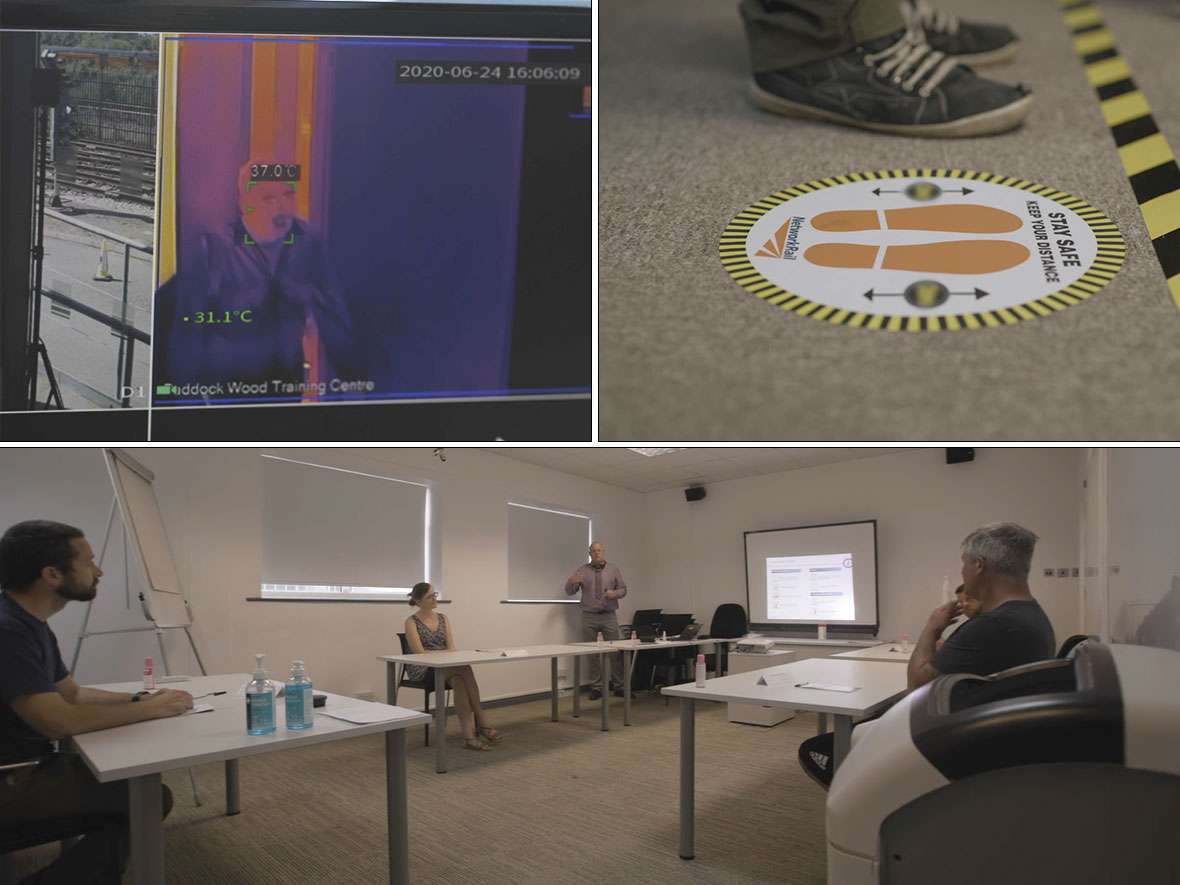Training safely
Aug. 6, 2020
Enhanced safety measures at Network Rail training centres (new video).

Caption: Stills taken from new training centre safeguarding video
Network Rail Training has introduced safeguarding measures at training centres around Britain to keep colleagues and their families safe, whilst ensuring the best possible training experience.
A significant amount of training has been transformed for virtual and online delivery, but some essential competencies require technical skills that need to be taught face to face. In line with Network Rail's guidelines and government advice, training centres have been adapted and ways of working altered to safeguard delegates and members of the training team who need to attend.
Watch our short video to see what we've done to keep delegates and centre colleagues safe.
Limited numbers:
Reception areas are quieter as there is no hot desking. To avoid congestion when entering a centre, colleagues should bring their own lanyard as ID.
Lucy Jones, workforce development manager, said: "We've got hand sanitiser in all the classrooms and around the building near high touch points. We've also reduced class numbers to ensure a safe distance can be kept throughout."
Managing risks:
Thermal imaging cameras check everyone's temperatures on arrival. Colleagues with a high reading, will be given a second check. For the wellbeing of everyone in the training centre, colleagues with consistently high readings will be unable to train.
Gary Warren, training delivery manager, said: "We've put in one-way systems and segregation in place using markers on the ground. We've also propped doors open where it doesn't increase fire risk, because we need to consider all of those other hazards that we're still managing."
Tea, coffee and lunch are still available. Pre-packaged lunch is served in classrooms. Tea and coffee stations have adopted a one-way system and delegates are asked to only make drinks for themselves.
Bring your own:
Where social distancing isn't always possible, for instance when using replica track or signalling equipment, delegates are asked to arrive equipped with their own personal protective equipment (PPE) as centres don't carry spare supplies.
Linda Johnson, national training manager, said: "When delegates come into the classrooms, we ask them to bring their own notepads and pens. At the end of the day, any equipment is removed from the classrooms. Delegates take their own equipment home with them and then the rooms are cleaned."
